June 19, 2025 | 17:10 GMT +7
June 19, 2025 | 17:10 GMT +7
Hotline: 0913.378.918
June 19, 2025 | 17:10 GMT +7
Hotline: 0913.378.918
TRAFFIC’s report states that from 2000 to 2014, over 1 million individual animals were killed. According to the IRF (International Rhino Foundation), since the beginning of the 20th century, the global population of wild rhinos has sharply declined from 500,000 to fewer than 28,000 individuals.
“In 2023 alone, 586 rhinos were killed due to poaching across Africa,” the IRF report states. “There are currently only 5 rhino species left in the world; 3 of these 5 species are critically endangered. In total, the combined population of all 5 species is less than 28,000.”
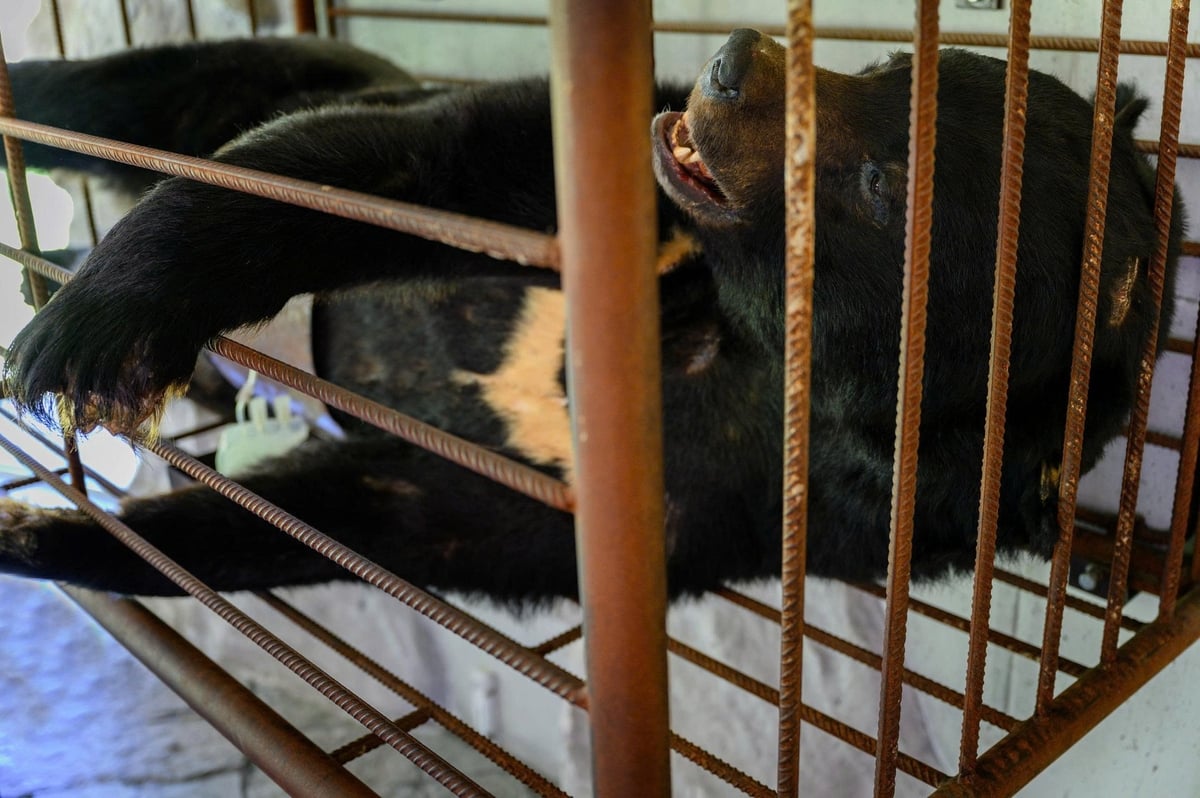
The use of animal-based remedies, whether from wild or captive animals, carries potential risks and the danger of disease transmission.
Many people are still unaware that products such as bear bile, tiger bone, rhino horn, and pangolin scales are illegal. They purchase these items, mistakenly believing in the exaggerated medicinal effects of traditional remedies derived from wildlife.
A survey conducted by TRAFFIC from 2021 to 2023 revealed that endangered target species, including elephants, rhinos, pangolins, terrestrial turtles, and freshwater turtles, are still being illegally traded on Vietnam’s online markets.
“The unsustainable and illegal trade of wildlife products such as ivory, rhino horn, pangolin scales, and tiger bones is causing unprecedented declines in some of the world’s most iconic species, as well as lesser-known species,” the TRAFFIC report states.
Blind beliefs and perceptions about the medicinal benefits and health-enhancing effects of wildlife products have made Vietnam a major consumer market and a key transit point for illegal wildlife products destined for other Asian countries over the past few decades.
“More than 22,497 advertisements/posts selling the five target species have been recorded. This indicates that illegal wildlife products continue to be traded at an alarming level,” the TRAFFIC survey states.
A report by the Education for Nature Vietnam (ENV) also highlights that in 2015, online wildlife-related violations accounted for about 21% (284 cases). However, during the period from 2018 to 2023, the rate of online wildlife violations increased significantly, reaching 54% (9,344 cases).
A survey conducted by TRAFFIC revealed that “rhino horn extract” - a newly emerging product not seen in previous surveys - is now being sold. This extract is advertised as having benefits such as enhancing male vitality, improving kidney, liver, and eye health, increasing appetite, strengthening bones and joints, detoxifying the body, preventing cancer, and reducing insomnia.
Pangolin scales and medicinal products containing pangolin scales account for the majority of pangolin-derived items sold online. In Traditional Medicine, pangolin scales are primarily used to treat skin conditions and various other ailments, including scabies, boils, hives, and acne. All 8 pangolin species in the world are currently at risk of extinction. According to the IUCN, "In Asia, pangolin populations have declined by over 80% in the past 20 years due to hunting for their scales and meat."
Turtle shells, powdered turtle shell, and turtle shell glue are the third most common group of wildlife products, often used for medicinal and food purposes. Tiger bone glue, also used in Traditional Medicine, and tiger bone-infused wine are the most widely advertised bone-derived products, promoted for medicinal purposes.
Between 2022 and 2024, the Forest Protection Sub-Department of Thua Thien Hue (now Hue City) handled 94 administrative cases related to wildlife, resulting in fines totaling nearly 500 million VND. Seized evidence included: 2 dead pangolins with their scales removed; 4 bear paws and 1 bear head skin (from sun bears); 1 douc langur skin; and 1 dead big-headed turtle.
According to statistics from the ENV, between 2015 and 2024, a total of 34 cases of illegal wildlife trade were discovered at Vietnamese seaports, with nearly 80 tons of ivory, rhino horn, and pangolin scales seized.
According to the World Organisation for Animal Health (WOAH), 144 diseases have been transmitted from wildlife to humans over the past 60 years. The World Health Organization (WHO) reports that 75% of emerging infectious diseases in humans over the past three decades have originated from animals.
Dr. Doan Van Minh, Head of the Department of Traditional Medicine at Hue University of Medicine and Pharmacy, recommends that we should focus on disease prevention and maintaining healthy lifestyles. When illness occurs, people should seek treatment at reputable medical facilities.He also emphasized that in the academic curriculum, all traditional medical texts that reference the use of wildlife-based remedies have been removed from the department’s teaching materials.
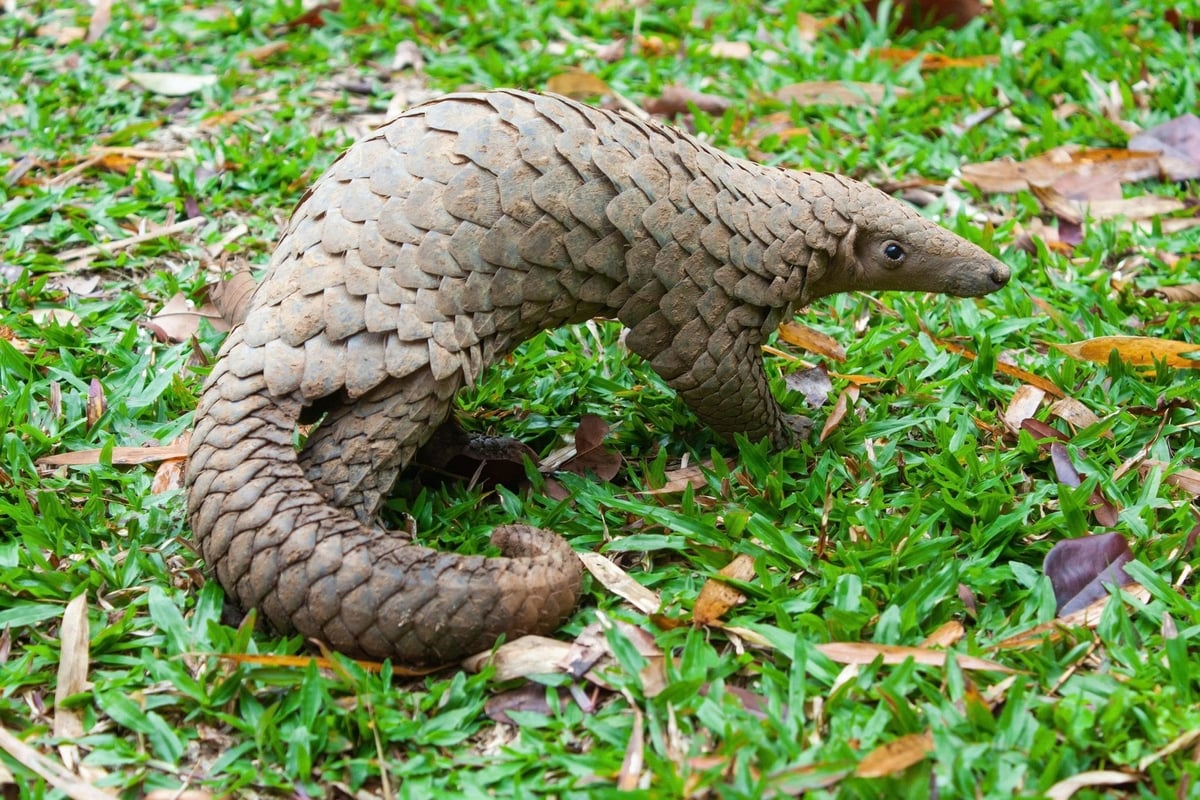
Blind belief in the healing powers of wildlife-based remedies has led to the illegal hunting of many species. Photo: Shutterstock.com.
“Don’t believe in rumors at the expense of your health. Rhino horn and other wildlife-derived products are not miracle cures,” Dr. Minh emphasized.
The use of animal-based remedies, whether the animals are wild or captive, carries significant risks, including the potential for disease transmission.
According to AnimalsAsia.org, among the bears that died at their rescue center, 38% died from cancer, which is believed to be caused by the bile extraction process. During this process, bears are injected with large amounts of antibiotics to control infections. Residues of these antibiotics are found in bear bile products, posing health risks to people who consume bile from farmed bears.
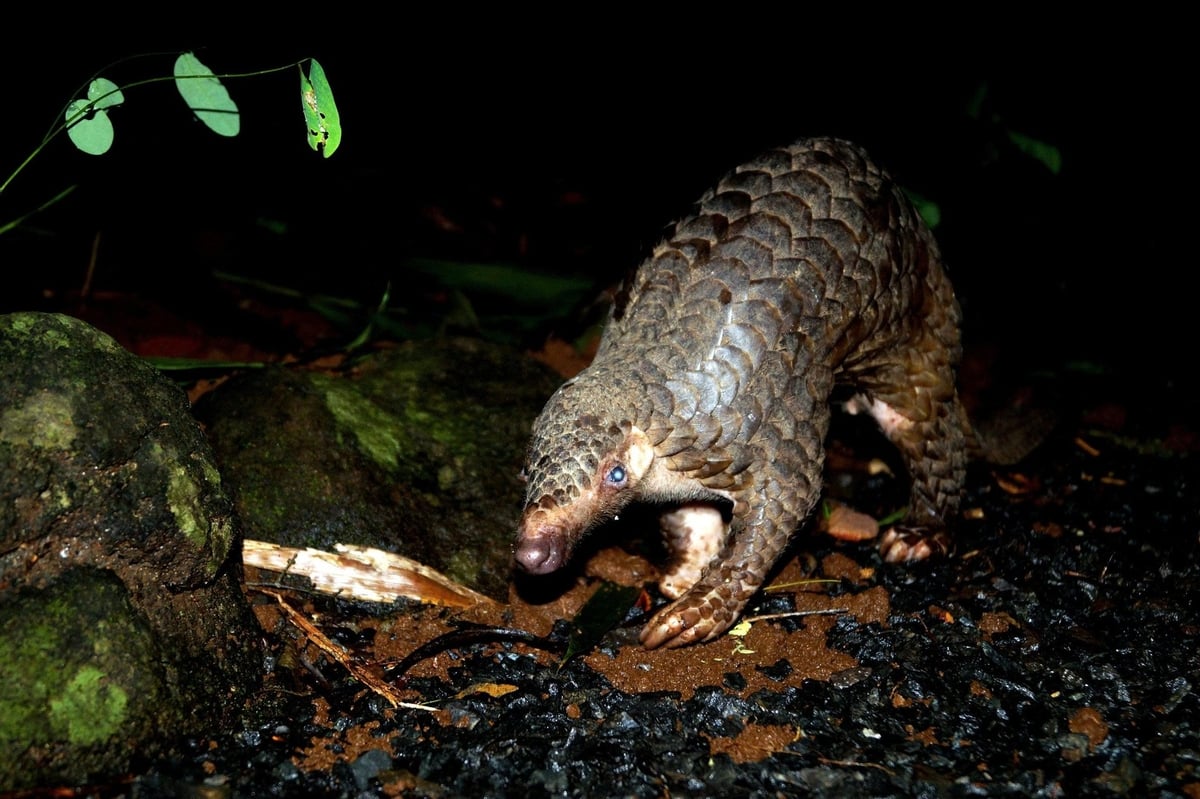
Blind faith in the medicinal effects of traditional remedies made from wildlife has led to the illegal poaching of many species. Photo: Shutterstock.com.
Mr. Avinash Basker, Legal and Policy Specialist at the Environmental Investigation Agency (EIA), United Kingdom, stated that "when a government agency accepts, even in the slightest, a wildlife-derived ingredient in medicine, the problem cannot be fully addressed. Human and animal health are interconnected. We must maintain harmony with nature. Above all, the WHO must take a clear stance: Traditional medicine must not use wildlife as medicine."
Ms. Lixin Huang, former President of the American College of Traditional Chinese Medicine, emphasized the need to raise awareness about the importance of wildlife conservation. She said that the practice of traditional medicine must carry meaning, uphold ethics, and respect all forms of life. "We must understand that the loss of any species can have profound impacts on biodiversity, nature, and ultimately on humanity itself."
"Pangolins, rhinos, and tigers are on the brink of extinction. This is severely damaging the reputation of Traditional Medicine. Its practice must not deviate from its principles. We must maintain the balance of body–mind–spirit and live as part of nature," she stressed.
In Traditional Medicine, bear bile is believed to have properties that reduce fever, detoxify, and relieve inflammation, swelling, and pain. It is also used to treat boils caused by toxic heat, skin infections, hemorrhoids, liver heat syndromes, convulsions from excess internal heat, and epilepsy. However, herbal alternatives can replace bear bile in treatment.
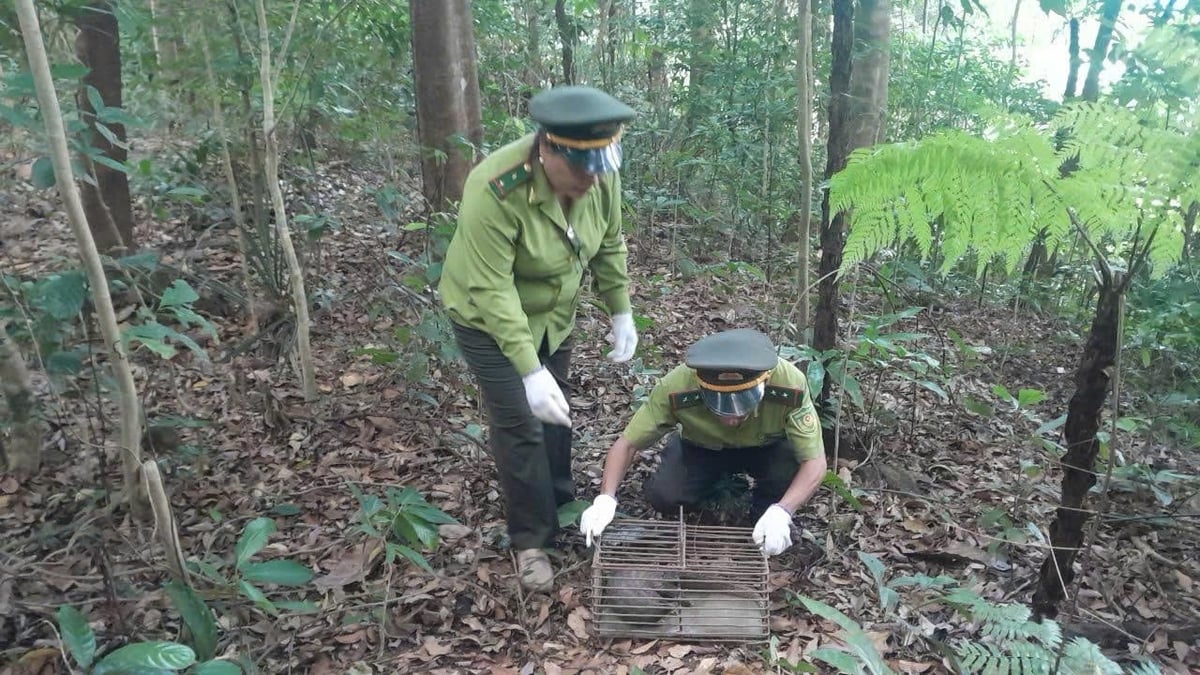
A pangolin individual is released back into the wild. Photo: Hue City Forest Protection Sub-Department.
Master of Medicine, Dr. Truong Thanh Tu from the Department of Traditional Medicine, Hue University of Medicine and Pharmacy, stated that suitable alternatives to bear bile must have similar chemical compositions or pharmacological properties. Herbal substitutes for bear bile are safe and beneficial for health, including Scutellaria baicalensis Georgi, Salvia miltiorrhiza, Coptis chinensis, and Gardenia jasminoides.
These herbal alternatives meet key criteria such as effectiveness, accessibility, and sustainability, while posing no harm to animals or the environment.
“For example, Scutellaria baicalensis has been shown to influence IL-6 promoter activity and CYP3A4 function, both of which play important roles in drug metabolism, detoxification, and processing exogenous compounds in the body,” Dr. Tu explained. He also noted that Coptis chinensis contains berberine, a major bioactive compound that has demonstrated significant therapeutic effects in treating liver diseases, including acute and chronic liver injury caused by CCl₄, alcohol, bile duct ligation, cirrhosis, and liver cancer.
According to the Vietnamese Traditional Medicine Association, at least 32 herbal alternatives to bear bile have been identified in Vietnam. These include cinnamon, "bear bile grass" (Coptis teeta or similar), turmeric, dragon's blood (Dracaena cambodiana), and mugwort, which can be used to treat inflammation, joint pain, protect the liver, and reduce swelling.
According to the teaching materials of Hue University of Medicine and Pharmacy, Gynochthodes officinalis (commonly known as Ba Kich) is used in the form of sun-dried or oven-dried roots. This herb is considered slightly warm in nature, with sweet and spicy flavors. It functions to tonify the kidneys, strengthen tendons and bones, calm the liver and subdue yang, and dispel wind-dampness. It is traditionally used to treat erectile dysfunction, spermatorrhea, premature ejaculation, lower back and knee pain, high blood pressure, and musculoskeletal or nerve pain.
As for Cibotium barometz (commonly known as Cau tich), its rhizomes are used after removing the hairs and drying them. This herb is also slightly warm in nature, with sweet and bitter flavors. It helps nourish the liver and kidneys, strengthen tendons and bones, and eliminate wind-dampness. It is commonly used to treat lower back and knee pain, erectile dysfunction, leukorrhea, spermatorrhea, diabetes, and neuro-musculoskeletal pain.
These herbs are considered viable alternatives to tiger bone glue, offering similar therapeutic benefits without harming wildlife.
Experts affirm that using plant-based alternatives to replace wildlife-derived remedies is a more feasible solution, as these herbs are easier to cultivate, harvest, process, and standardize in terms of quality and quantity, while posing no threat to the ecosystem.
Dr. Lixing Lao, President of the Virginia University of Integrative Medicine, USA, emphasized: As practitioners of traditional medicine, we must speak up. We must raise our voices and let the public know that we oppose the use of endangered species.
“That is not part of traditional medicine practice. We emphasize the harmony between humans and nature. Environmental protection is one of our core principles,” Dr. Lao said.
TRAFFIC is a leading non-governmental organization working to ensure that wildlife trade is legal and sustainable, for the benefit of both the planet and people.
$ 1 = VND 25.853 - Source: Vietcombank.
Translated by Phuong Linh

(VAN) Agrifood investment and finance solutions for people and the planet.

(VAN) Microplastic contamination has become pervasive in seafood, posing unprecedented challenges for food safety and marine ecosystems.
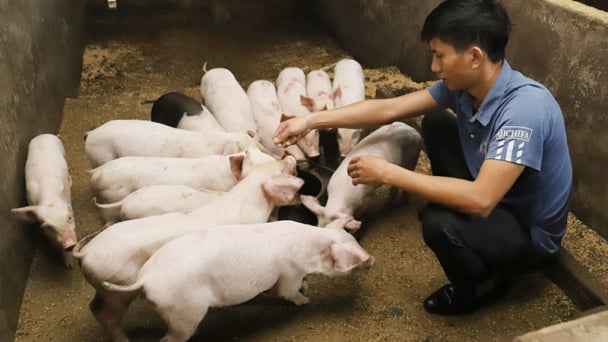
(VAN) Proactively using vaccines, combined with transport control and enhanced surveillance, is the only viable path toward biosecure and sustainable livestock production in Vietnam.

(VAN) Located in the southeast of Ho Chi Minh City, the Can Gio Mangrove Biosphere Reserve is considered the ‘green lung,’ a solid shield protecting the city.

(VAN) To address plastic pollution, closing the plastic recycling cycle will bring significant economic and environmental benefits.

(VAN) According to the Binh Thuan Department of Industry and Trade, in the first five months of 2025, Binh Thuan's dragon fruit export turnover increased by 20.65% compared to the same period last year.